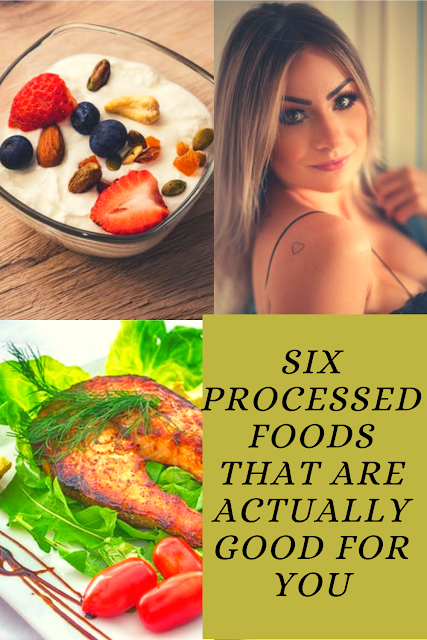Don't always have time to cook from scratch but racked with guilt every time you turn to ready meals to speed up dinner time? Thanks to the rise in 'clean eating,' processed foods have been given a bad rap, and that Friday night take away or ready meal is usually talked about with mild disdain. The first step to eating healthier - we are told - is to cut out processed foods.
The word 'processed' has negative connotations, just like the word 'natural' has positive ones. But are we being too quick to lump all processed foods together as being inherently unhealthy?
What are processed foods?
The term processed food applies to any food that has been altered from its natural state in some way, either for safety reasons or convenience. If you eat a lot of highly processed foods, you do put yourself at risk of consuming too much sodium, added sugars and unhealthy fats. But contrary to common misconceptions, processed foods are more than just ready meals and takeaways.
The reality is that most of us don't have time (or even, possibly, the inclination) to cook entirely from scratch every single day. And this is not something that we should feel remotely guilty about. In defence of speedy mealtimes, here are six processed foods that are actually good for you:
1. Tomato Puree
A study in The American Journal of Clinical Nutrition found that the bright red pigment in tomatoes (lycopene) is more bioavailable to the body (in other words, the body can absorb and use it more efficiently) in the form of tomato paste rather than fresh tomatoes. Lycopene is a powerful antioxidant, and may lower the risk of prostate and other cancers. It has also been studied for its role in stroke protection. Lycopene is fat-soluble, meaning that it is best absorbed when combined with fat such as olive oil, so team these two ingredients together in your next spaghetti bolognese for a healthy dose.
2. Peanut Butter
If you keep a jar of this in the cupboard, you always have the basis of a nutritious snack. Peanut butter has a good combination of protein and fibre, that fills you up and keeps you feeling full for longer. It's also a fantastic source of heart-healthy monounsaturated fat and vitamin E. Spread onto wholegrain toast, crackers or sliced apple. Just be sure to avoid brands that have added sugar.
3. Frozen Spinach
There is a common misconception that frozen produce is nutritionally inferior to fresh. In fact, frozen vegetables tend to be harvested at their peak, and immediately frozen to retain their nutrients and taste. Fresh produce, on the other hand, loses some of its nutrient value when travelling, and then can sit in storage for days or weeks before reaching supermarket shelves. Green leafy vegetables such as spinach are particularly susceptible to folate and vitamin C loss, so by choosing frozen you are likely to get higher levels of these delicate nutrients.
4. Natural Probiotic Yoghurt
The process of turning milk into yoghurt, using live bacterial cultures, is a form of food processing that yoghurt can attribute to its health properties. This process retains the milk's protein and calcium content, while giving the yoghurt probiotics (live bacteria) that are known to provide both digestive health and immune benefits. Choose yoghurts labelled as containing 'live' cultures, and avoid fruit-flavoured yoghurts that are often highly sweetened.
5. Tins of Beans
These store cupboard staples are not only cheap, but highly nutritious, providing a fantastic source of protein, fibre and B vitamins. And in the reality of everyday life, opening a tin is much more practical than the rinsing, 12-hour soaking, and cooking involved when you buy the dried alternatives. Choose varieties that are tinned in salt water (such as kidney beans, butter beans and aduki beans), and not sugar-laden sauces (such as baked beans). Tinned beans can be added to soups, stews and curries, or blended up to make delicious dips.
6. Canned Salmon
This has the same nutritional value as fresh salmon, and is just as rich in omega-3 fatty acids. In fact, because tinned salmon is often packed in its own oil, you might enjoy an extra boost of these omega-3s. Canned salmon also contains the bones (which soften during the canning process, making them edible), and these provide a good source of calcium. Canned salmon has the additional benefits of being cheaper, having a much longer shelf-life, and requiring no cooking or preparation.
